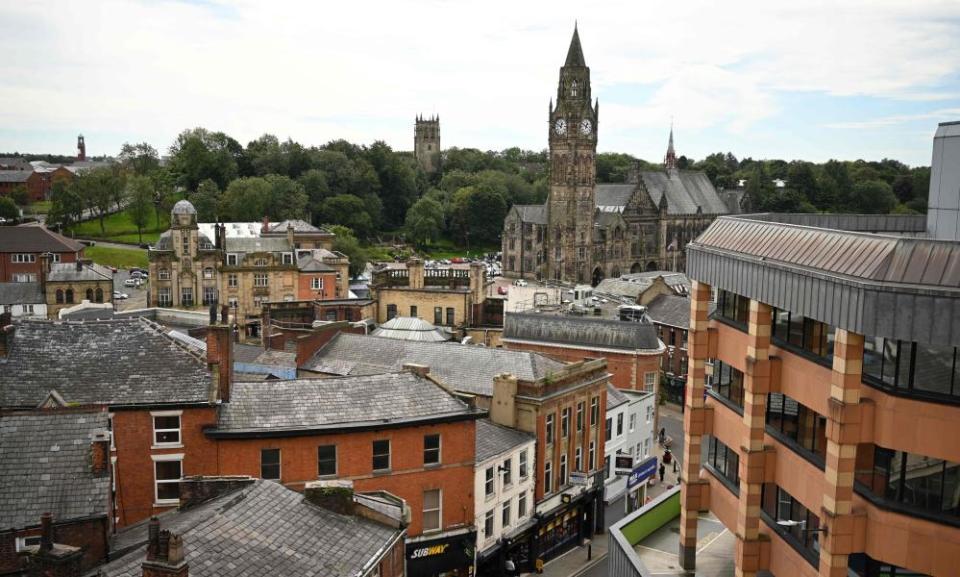UK ministers were warned local lockdowns could fuel racial tensions

The government has been accused of being “tone deaf” for its sudden introduction of further lockdown restrictions in the north of England last month shortly after being warned that local interventions could fuel racial tensions.
Documents released by the government’s Scientific Advisory Group for Emergencies (Sage) warned that in areas with vulnerable or marginalised communities local interventions could make people feel stigmatised, damage trust in government and lead to social unrest.
The document from a group of behavioural science experts known as SPI-B, dated 27 July, was provided to Sage for their meeting on 30 July. In it they noted that “marginalised and/or ethnic minority communities (eg BAME) which are already more susceptible to coronavirus due to wider structural inequalities may also be particularly vulnerable to the effects of local restrictions”.
In particular the group criticised the use of the term “lockdown”, saying it can be seen to emphasise blame.
Later that evening, and a day before a major religious festival, the health secretary, Matt Hancock, announced an increase in restrictions in the North of England, scuppering many families’ plans for Eid. The announcement led to criticism, with locals in the areas saying they felt singled out. It was announced on Friday that the restrictions would stay in place for a third week.
Dr Zubaida Haque, interim director of the Runnymede Trust and a member of the Independent Sage group, said the documents showed the government response was “tone deaf”.
“It does raise a serious question … essentially are those groups [of experts] there for the sake of appearance as opposed to government making decisions based on expert and scientific advice,” she said, adding the government “clearly ignored” the SPI-B evidence.
“The bigger question I think is whether [the government] thinks the equality impact aspect is at all important in terms of the measures that they are rolling out in relation to Covid-19,” Haque said, noting several groups have raised concerns about a lack of equality impact assessments of such interventions.
In the document the SPI-B team had responded to questions from Sage. One question they were asked was: in areas with vulnerable or marginalised communities, how can government ensure measures are equitable and non-discriminatory?
The groups’s response flagged that while local interventions could bring people together, they could also make people feel isolated and stigmatised, which could damage trust in local and national government and affect adherence to public health measures.
“These communities disproportionately live in crowded accommodation or multi-generational households and are more likely to be financially disadvantaged by restrictions (eg employed in sectors with no potential for furlough). Given the current epidemiological trend of transmission concentrations within BAME communities, there is the risk of racial stigmatisation and discrimination.”
The scientists further noted that local interventions must be taken with care.
“Measures should be implemented in a way that is equitable and takes into account the potential for restrictions to penalise marginalised social groups more heavily,” they wrote, adding that communication with local leaders is key, together with careful messaging that is sensitive and culturally appropriate.
Dr Michael Head, senior research fellow in global health at the University of Southampton criticised the handling of increased restrictions in the North of England.
“Outbreaks can be best addressed with leadership from local public health directorates, who have greater understanding and relationships with their local population,” he said. “That did not happen in Greater Manchester, with centralised decision-making and delayed communication to the public health directorate. All vulnerable people have to be treated with respect and understanding, which was not something we necessarily saw with the Greater Manchester lockdown, where Conservative MP Craig Whittaker made unhelpful baseless claims around the Muslim community.”
The MP had claimed the “vast majority” of people breaching coronavirus lockdown rules were from BAME communities.

 Yahoo News
Yahoo News 